Archive for January, 2011
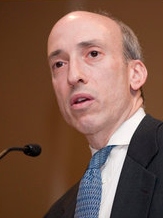
Regulators move to bolster oversight of hedge funds
 (New York Times): Financial regulators are planning to collect confidential information from hedge fund managers and other investment advisers, as the government moves to shed more light on the private investment world. The plans, drafted by the Securities and Exchange Commission and the Commodity Futures Trading Commission, or CFTC, would require some investment advisers to periodically turn over private data, including details about their trading and the amount of assets they manage. Although the proposed disclosures are not comprehensive, regulators hope the new information will help them determine whether hedge funds or other investment firms pose a systemic danger to the economy. The Dodd-Frank Act, the financial regulatory overhaul enacted in July, mandated such reporting.
(New York Times): Financial regulators are planning to collect confidential information from hedge fund managers and other investment advisers, as the government moves to shed more light on the private investment world. The plans, drafted by the Securities and Exchange Commission and the Commodity Futures Trading Commission, or CFTC, would require some investment advisers to periodically turn over private data, including details about their trading and the amount of assets they manage. Although the proposed disclosures are not comprehensive, regulators hope the new information will help them determine whether hedge funds or other investment firms pose a systemic danger to the economy. The Dodd-Frank Act, the financial regulatory overhaul enacted in July, mandated such reporting.
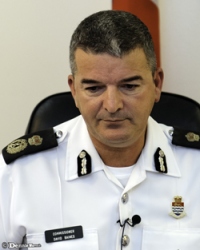
RCIPS tackles drugs & gangs
 (CNS): There are indications that the Cayman Islands is being used as a hub for significant quantities of cocaine trafficking, Police Commissioner David Baines said at an RCIPS press briefing Wednesday. Recently there were two significant seizures in the UK of cocaine from flights from Cayman – one of 6 kilos and one of 10 kilos – within a 2 week period and around the same time 44 kilos of cocaine washed up on a beach in the Cayman Islands. He said it was apparent that there were increasing levels of cocaine distributed on island and the purity of cocaine recovered here was “about as pure as you can get”, unlike in UK where it has been considerably doctored down. This suggested that it was “straight from the production side,” Baines said. (Photo by Dennie Warren Jr)
(CNS): There are indications that the Cayman Islands is being used as a hub for significant quantities of cocaine trafficking, Police Commissioner David Baines said at an RCIPS press briefing Wednesday. Recently there were two significant seizures in the UK of cocaine from flights from Cayman – one of 6 kilos and one of 10 kilos – within a 2 week period and around the same time 44 kilos of cocaine washed up on a beach in the Cayman Islands. He said it was apparent that there were increasing levels of cocaine distributed on island and the purity of cocaine recovered here was “about as pure as you can get”, unlike in UK where it has been considerably doctored down. This suggested that it was “straight from the production side,” Baines said. (Photo by Dennie Warren Jr)
The fact that it was discovered on these flights indicated that Cayman is part of the transshipment of the drug. However,there were also signs that it is being distributed locally. In the UK they found that the advent of the use of cocaine by users corresponded to the advent of street robberies as the need for quick money resulted in increasingly bold crime. Baines said the RCIPS was seeing some of that here. With a threat of violence or actual violence in the majority of robberies last year that was "wholly disproportionate to the spoils", Bains asked why the perpetrators would risk ten year’s imprisonment for firearms crime for relatively small amounts of money, and suggested it was a sign of illicit drug users.
Chief Superintendent John Jones noted that nasty violent crimes were symptomatic of crack cocaine users, a theory supported by seizures of crack.
In enforcement of boarder control it is important to work with partners across region, such as Honduras, Jamaica and US, to stop drugs and the firearms that often comes with them coming into the islands, Baines said. Asked what the RCIPS needs in terms of equipment and resources, the commissioner said it was a question that should be looked at on a regional basis; there was a need to operate in the Caribbean as a region and coordinate endeavours. There is little point, for example, in having radar capacity that doesn’t link into with Jamaica or Honduras, he pointed out.
The US recognizes the threat, not least because their efforts to stem the drugs coming across the Mexican border will increase the threat of drugs coming through the Caribbean, the commissioner said, noting that US President Obama, under the Caribbean Basin Security Initiative, promised $42million to that end last year and up to $70million this year.
“That’s about giving us some capability to fill the intelligence and information gap to make the best use of the resources you’ve got,” he said. The helicopter can go out 60 miles off the coast at times and conditions when traditionally we’ve experience vessels coming to us, he said, but if it’s covering the area from Jamaica, it’s not covering the area from Honduras. He also said the RCIPS vessels were “fit for purpose” but the issue was how to make sure they were in the right place at the right time – which comes down to intelligence and information to identify suspect vessels and see where they are.
He said this was why looking collectively at the provision of wider radar coverage in the Caribbean was important.
Baines said he was pretty certain that some of the robberies on Grand Cayman were gang initiation ceremonies, to prove they had what it takes to act in criminal manner, and the crimes provided immediate funds for drugs and alcohol for gang members. This was one possible explanation why small amounts cash were targeted from vulnerable places, such as pizza parlours and corner shops.
Last year Baines had said there was a small group of men who were mostly responsible for the island’s murders. On Wednesday he said that fourteen men were now in custody, some primary gunmen and many that people in the community knew were involved. Other individuals were dead, the victims other gang members. He said there were a few gunmen still in the community and 2 individuals had left the jurisdiction.
“We stand at a crossroads,” Baines said, when asked about a possible new wave of recruits into gangs. “We are not going to arrest and convict our way out of a pool of individuals who have no stake in society, who would rather be part of a gang and have some status or respect within that gang, and some will always step in to be the head or the most violent in that gang.” The challenge for the RCIPS was to arrest them as quickly as possible, he said.
“Regrettably, there aregang members across the island, maybe not wanting to shoot and kill each other, but they engage in criminality at whatever level,” he said. “There will always be those people at the far edge who will bethe enforcers or the violent or the gunmen in those gangs. They are our priority because they are the most dangerous. Equally, there is a pool out there willing to be soldiers to step into vacancies we created.”
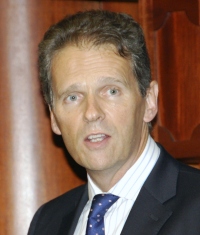
Accounts down to Cabinet
 (CNS): The country’s governor says he believes that his office does not have the ultimate responsibility for the problems surrounding the breakdown of the public accounts system but that the responsibility is held collectively by Cabinet. Speaking to CNS recently, Governor Duncan Taylor said it was essential that the accounts were properly addressed and that the system was changed. Although he said he did not believe that the country’s accounting system could go back in time, it would need to change in order to move forward and provide the public with transparent and accurate accounts. “The nettle needs to be grasped,” Taylor said.
(CNS): The country’s governor says he believes that his office does not have the ultimate responsibility for the problems surrounding the breakdown of the public accounts system but that the responsibility is held collectively by Cabinet. Speaking to CNS recently, Governor Duncan Taylor said it was essential that the accounts were properly addressed and that the system was changed. Although he said he did not believe that the country’s accounting system could go back in time, it would need to change in order to move forward and provide the public with transparent and accurate accounts. “The nettle needs to be grasped,” Taylor said.
He said he had spent considerable time in discussions with the auditor general and that he agreed with Alastair Swarbrick that the issue was certainly one of leadership. The governor said that the goal now was to catch up as quickly as possible and then change the system and address some of the complexities inherent with it. He said government had to be held accountable by the people for the money it spent.
Although he would not be drawn on exactly where the buck stopped, he said he did not believe it was down to the governor’s office. He said, however, the management of the system was the collective responsibility of all members of the Cabinet.
Above all, the governor said, the problem was a change management issue and that the law needed to be simplified. While it may take some years to to turn the system around, the governor said it was important that government was held accountable.
On a more positive note regarding government finances, he said the savings made in the budget had gone a long way to reducing the anticipated deficit and that the FCO was satisfied the CIG was committed to addressing public spending.
He acknowledged the reviews of the civil service were taking longer than had been originally anticipated, but he said they were much more in depth than had been expected and had revealed considerable potential future savings. Following the completion of reports on the first four departments, which were recently made public, the next phase, which is a review of another eight agencies, is almost complete, Taylor said. However, the civil service management was trying not to lay people off and make the staff cuts through natural attrition. “Where there isn’t a benefit system it is difficult to make people redundant,” Taylor added.
With lingering economic concerns for the year ahead, the governor said it was important that government remained on track to keep government finances under control. Taylor said the next three months, when government took in a considerable amount of income, would be crucial, especially as government was still facing unfunded liabilities.
“The pressure will not ease on government finances until it has created a sink fund,” the governor added.

Preventative healthcare keeps costs down
 (CNS): Getting individuals involved in keeping themselves healthy is a good way to keep healthcare costs down and improve the quality of healthcare, according to Dr Edward Cabrera Chief Medical Officer of KePRO, a medical expert brought to Cayman to speak at the Healthcare Thought Leaders Forum, which took place recently at The Ritz-Carlton and was organised by Ken Di Bella, CEO and President CBCA Administrators/Simplifi, healthcare management advisers to CINICO. Dr Cabrera said that introducing wellness programmes for employees which constantly reached out to them would result in changing behaviour for the good and reduce the risk of people developing chronic diseases such as heart disease, stroke, diabetes and hypertension.
(CNS): Getting individuals involved in keeping themselves healthy is a good way to keep healthcare costs down and improve the quality of healthcare, according to Dr Edward Cabrera Chief Medical Officer of KePRO, a medical expert brought to Cayman to speak at the Healthcare Thought Leaders Forum, which took place recently at The Ritz-Carlton and was organised by Ken Di Bella, CEO and President CBCA Administrators/Simplifi, healthcare management advisers to CINICO. Dr Cabrera said that introducing wellness programmes for employees which constantly reached out to them would result in changing behaviour for the good and reduce the risk of people developing chronic diseases such as heart disease, stroke, diabetes and hypertension.
He pointed out that the increase in chronic diseases was a worldwide issue, with the World Health Organisation estimating that 60 per cent of deaths worldwide were attributable to chronic illness and the United States spending US$470 billion annually on chronic diseases.
Wellness programmes have proven to be effective tools in increasing healthcare quality and reducing costs, said Dr Cabrera. People in Cayman could benefit from an innovative approach to health assessments which would be age and gender appropriate and include biometric and personal healthcare screenings.
They would then have constant communications to encourage and reward them when they lost weight, undertook physical exercise etc, via a multi media approach that could include mobile phones, text, email and social networking such as Facebook and Twitter.
“We all have busy lives and we are not all disciplined so the challenge is to engage people in their own healthcare using a multi-pronged approach, because everyone communicates differently,” Dr Cabrera said.
The added benefit of such a programme would be that physicians on island would have up-to-date real time information on their patients which could be used to help treat them more effectively.
“The programmes would be interactive and customised to suit the patient,” he said. “For example, if someone was on a weight loss programme they could call in with milestone information. They could be rewarded by a text or call when they reach that milestone. It’s all about keeping them involved.” Dr Cabrera believed that everyone on Cayman could benefit from such a programme and not just those on government health plans.
Kelly Burn, Executive Healthcare Consultant, said that another way for Cayman to reduce healthcare costs was to get rid of the middle man when it came to healthcare provider networks and take on the responsibility itself. In this way Burn said that Cayman would save money, get healthcare better suited to its population, have better control over healthcare and improve the overall economy by having Caymanians employed to do the job.
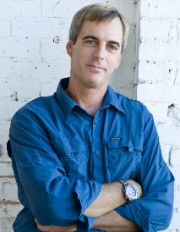
Debut novel by Little Cayman resident is eco-thriller
 (CNS): What happens when you have to choose between doing the right thing, knowing disaster will ensue, or doing the wrong thing and saving everything you love? Little Cayman resident Tim W. Jackson addresses that dilemma in his debut literary novel, Mangrove Underground, published January 2011 by The Chenault Publishing Group. Set in the Florida backcountry, Jackson’s novel has its roots deep in the state’s eco-thriller tradition. Yet it subtly subverts the expectations of the genre with its story of one man’s betrayal and redemption before a backdrop of wildfires, environmental extremism and real estate skullduggery that could have been pulled directly from today’s headlines.
(CNS): What happens when you have to choose between doing the right thing, knowing disaster will ensue, or doing the wrong thing and saving everything you love? Little Cayman resident Tim W. Jackson addresses that dilemma in his debut literary novel, Mangrove Underground, published January 2011 by The Chenault Publishing Group. Set in the Florida backcountry, Jackson’s novel has its roots deep in the state’s eco-thriller tradition. Yet it subtly subverts the expectations of the genre with its story of one man’s betrayal and redemption before a backdrop of wildfires, environmental extremism and real estate skullduggery that could have been pulled directly from today’s headlines.
The tale is told in a series of intertwined narratives, each with its own storyteller. As the stories slowly converge, they convert a former perpetrator into an unlikely hero as he discovers the sacrifices that must be made to save his community and create a life he can be proud of. “Mankind’s struggle with right vs. wrong is a timeless theme, and this is ultimately a story of redemption – although there are plenty of surprises and twists along the way,” says Jackson.
Author C.W. Smith says of Mangrove Underground: “Plotted with the complexity of a Chinatown, Jackson’s novel boasts a gritty authenticity coupled with literary mastery to achieve a vivid portrait of a place writhing in the grip of change.”
A former press photographer in Florida, Jackson gained first-hand knowledge of backcountry firefighting while accompanying fire crews battling wilderness blazes. He also spent much time canoeing and hiking throughout the backcountry that serves as the backdrop for Mangrove Underground.
Following a 10-year journalism career, Jackson returned to academia to earn a Master of Arts in English at Southern Methodist University in Dallas, Texas. His non-fiction travel writing about the Florida wilderness has appeared in the Tampa Tribune. His short fiction has appeared, or is forthcoming, in the High Plains Literary Review, Confrontation, Palo AltoReview, Oracle Story and Letters and Conceit.
Jackson has worked as a boat captain and scuba instructor at Conch Club Divers on Little Cayman since 1999. He is finishing a second novel, set in the Caribbean, as well as a related collection of island-based short stories.
Mangrove Underground will be available in local bookstores, at the Little Cayman National Trust House, online, and in all e-book formats. To learn more about Mangrove Underground, visit the author’s website at www.timwjackson.com.

Essay competition asks students to explore leadership
 (CNS): The University College of the Cayman Islands (UCCI) is inviting high school and tertiary level students to write an essay on the issues of leadership, governance and empowerment. The competition will be part of UCCI’s International Conference on Leadership, Governance and Empowerment in the Caribbean slated for March 17 and 18. Students will benefit by improving their writing skills, winning great prizes and bringing accolades to their schools. Essays have a limit of one thousand to 1,500 words and will be marked out of a total of 25 points for content, organization and use of language/expression. All participants are expected to supplement their essays with relevant authoritative sources.
(CNS): The University College of the Cayman Islands (UCCI) is inviting high school and tertiary level students to write an essay on the issues of leadership, governance and empowerment. The competition will be part of UCCI’s International Conference on Leadership, Governance and Empowerment in the Caribbean slated for March 17 and 18. Students will benefit by improving their writing skills, winning great prizes and bringing accolades to their schools. Essays have a limit of one thousand to 1,500 words and will be marked out of a total of 25 points for content, organization and use of language/expression. All participants are expected to supplement their essays with relevant authoritative sources.
The MLA referencing style should be used and the essay must be the original work of the writer. Essays are to be submitted no later than Monday, 28 February, and students are urged to participate.
The first and second prize winners for both categories will be recognized on Thursday, 17 March, the conference’s first day, which features a cocktail reception, various exhibits and the keynote address by Sir Shridath Ramphal, leading Caribbean statesman and former secretary-general of the Commonwealth Secretariat.
Further details on the essay competition have been posted on the UCCI Conference website at www.ucciconference.ky. Interested persons can contact Erica Gordon by telephone at 623-0512 or email egordon@ucci.edu.ky. Another contact, Stephanie Fullerton-Cooper can be reached at 623-0532 or sfullerton-cooper@ucci.edu.ky.

Prosecutor to cost $2.8m
 (CNS): The deputy governor says that the country will have a director of public prosecutions that will be charged with handling the criminal cases in the country’s courts before the end of 2011. The new office, which will be formed from part of the current legal department, will cost around $2.8m per year and have the responsibility of prosecuting solely criminal cases on behalf of the crown. The drafting of the country’s legislation, legal advice to government and civil work will all remain with the Attorney General’s Chambers. The new post, established under the 2009 Cayman Islands Constitution, is expected to be advertised in the next few months, Donovan Ebanks revealed in the Legislative Assembly earlier this month.
(CNS): The deputy governor says that the country will have a director of public prosecutions that will be charged with handling the criminal cases in the country’s courts before the end of 2011. The new office, which will be formed from part of the current legal department, will cost around $2.8m per year and have the responsibility of prosecuting solely criminal cases on behalf of the crown. The drafting of the country’s legislation, legal advice to government and civil work will all remain with the Attorney General’s Chambers. The new post, established under the 2009 Cayman Islands Constitution, is expected to be advertised in the next few months, Donovan Ebanks revealed in the Legislative Assembly earlier this month.
Responding to an opposition parliamentary question from Alden Mclaughlin, Ebanks said a job description had been developed for the DPP and, “subject to funding”, the new top legal position would be advertised during the next few months.
The deputy governor revealed that the job has been assessed at grade D and will pay a salary of up to $125,000. As the person is not likely to be officially appointed until the later part of 2011, he said, the job would not impact this current fiscal year’s budget. The new Judicial and Legal Services Commission will be advising the governor on the post, and that body has now drafted a law to underpin its operations.
In the 2011/12 strategic policy statement it was revealed that the new office will cost around $2.8million, which will be made up of the $2.6m currently allocated to the legal department for prosecution services along with another quarter of a million for the DPP’s salary and extra staff, such as a secretary, and the cost of opening the office.
Ebanks said it was not yet clear exactly how the staff from the existing department would be divided but it was expected that many of the public sector lawyers currently working on criminal cases on behalf of legal services would now move to the new independent office. Currently, it is the solicitor general that heads up the prosecution of criminal cases but that role is normally a more civil role, and so is likely to stay within the Attorney General’s Chambers.
McLaughlin queried what exactly the attorney general would do in future if the DPP was taking on the criminal work and the solicitor general the civil work, but Ebanks stated the AG would still head up the legal department, which included the civil work as well as legal drafting and the advice to government.
Ebanks denied any need for a new layer of bureaucracy straining the public purse as a result of the change. He pointed out that, although there would be the public prosecutor’s salary and the costs associated with establishing a new office, the majority of lawyers for the DPP would simply transfer from legal to the independent office of the new public prosecutor.
The creation of the office of the DPP is one of a number of outstanding issues that were provided for under the 2009 Cayman Islands Constitution which have yet to be addressed.
Government still has a list of issues which are still outstanding some 14 months after the constitution came into force. The Standing Orders in the Legislative Assembly need to be changed, a draft order to create three new seats for the parliament needs to come to the LA, a guide to the operations of Cabinet needs to be published and the legislation for people initiated referendums needs to be passed.
Although the commission charged with overseeing standards in public life has been appointed, so far it has not begun its work. In a short report after the commission’s first meeting the members said that it could carry out its constitutional mandate without appropriate legislation. Ebanks told his legislative colleagues that a draft of the law to underpin that important commission was almost complete.

Real Estate in Cayman
The problem with Cayman real estate is that it was driven by a tax-free wealth preservation and speculative marketing structure. Most non-resident buyers purchased property with the expectation that it would either increase in value or be paid for by rental returns. Since their investment was offshore, any equity growth or value appreciation would remain tax-free until it was repatriated.
Since no one likes to pay taxes the wealth captured here was seldom repatriated; it was either land-banked (sic) or rolled over into more expensive properties.
The strength of this recession changed attitudes a lot. Foreign private owners are not only cashing out because they need the money but also because of tax treaties and new opportunities — the world is saturated with great deals and great places to live. Even our Caribbean neighbors are getting their act together; just look at the homes in Caribbean lifestyle magazines or at St Kitts and Nevis, where they throw in a new passport for a purchase over $350K.
Our once powerful and unique sales pitch resulted in the continuous expansion of property investment, development and price increases, a self-fulfilling prophecy that encouraged more foreign buyers. The residential population and expatriate worker also dove into real estate investment with a passion. Most local wealth in Cayman is now buried in real estate.
This once powerful investment message is worn out, the bubble has burst and we don’t have a sales pitch to fit the newreality. If you remove speculation from the equation, the only justification for purchasing real estate is income producing, lifestyle improvement and basic housing needs. Hence the hope expressed above that the new economic development projects will soak up the inventory currently on the market. Besides residential real estate, what are we going to do with the huge glut of empty commercial property in Cayman? When government moves into its new building we will have nearly half a million square feet of vacant office space in Cayman. Think about that for a moment.
Unfortunately inventory and market activity are interlinked: if the market expands our inventory will also expand, especially in Cayman where we have so many big investors, experienced developers and freelance contractors sitting on all those land banks, investment funds and planned projects.
As more land banks are liquidated at distressed prices the cost of new development is reduced, which makes it more competitive to develop. This just-in-time, price sensitive, manufacturing capacity will anticipate any market growth and our inventory will expand before demand does. When you consider that there is also an overhang of property waiting for the market to improve, it is unlikely that we will return to the exciting appreciation led market growth of the past.
Our only solution is real economic diversity and expansion. Cayman is no longer unique in this new global marketplace. If we want to move forward we need new industries, new active business investors and more people living and working here. While we attempt to work those socially sensitive issues out, our competitors are aggressively inventing new opportunities.
The best bet for our real estate industry is to switch from selling market appreciation and focus on selling value within the current marketplace. The sooner that happens the quicker the industry can reboot.
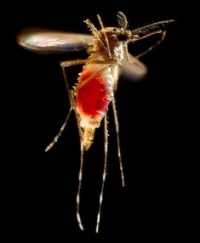
Malaysia releases lab mosquitoes to fight dengue
 (Yahoo! News): Malaysia released about 6,000 genetically modified mosquitoes into a forest in the first experiment of its kind in Asia aimed at curbing dengue fever, officials said Wednesday. The field test is meant to pave the way for the use of genetically engineered Aedes aegypti male mosquitoes to mate with females and produce no offspring or ones with shorter lives, thus curtailing the mosquito population. A similar trial in the Cayman Islands last year — the first time genetically modified mosquitoes have been set loose in the wild after years of laboratory experiments and hypothetical calculations — resulted in a dramatic drop in the mosquito population in a small area studied by researchers.
(Yahoo! News): Malaysia released about 6,000 genetically modified mosquitoes into a forest in the first experiment of its kind in Asia aimed at curbing dengue fever, officials said Wednesday. The field test is meant to pave the way for the use of genetically engineered Aedes aegypti male mosquitoes to mate with females and produce no offspring or ones with shorter lives, thus curtailing the mosquito population. A similar trial in the Cayman Islands last year — the first time genetically modified mosquitoes have been set loose in the wild after years of laboratory experiments and hypothetical calculations — resulted in a dramatic drop in the mosquito population in a small area studied by researchers.

AP programme can take Cayman kids to Harvard
 (CNS): The Cayman Islands Further Education Centre that has been created to accommodate students in the first mandatory Year 12 is not only providing vocational opportunities but academic ones as well for the highest achieving teens from Year 11. The Advanced Placement programme allows students to take exams that will facilitate their entry into American, British, European and Caribbean universities and colleges. Speaking in the Legislative Assembly earlier this month the education minister said that the AP qualifications are administered by the college board which offers SATs in the US and are recognized by institutions such as Harvard in the US and Oxford in the UK.
(CNS): The Cayman Islands Further Education Centre that has been created to accommodate students in the first mandatory Year 12 is not only providing vocational opportunities but academic ones as well for the highest achieving teens from Year 11. The Advanced Placement programme allows students to take exams that will facilitate their entry into American, British, European and Caribbean universities and colleges. Speaking in the Legislative Assembly earlier this month the education minister said that the AP qualifications are administered by the college board which offers SATs in the US and are recognized by institutions such as Harvard in the US and Oxford in the UK.
Students are required to take maths and English and can pick two other subjects from the arts, sciences and languages, and as the Advanced Placement is a two year programme students will be able to take different subjects in the second year. The AP programme is scheduled to be introduced to the Brac high school in September 2013.
The students taking the AP programme are also part of an Education Department pilot project, testing the feasibility of one-to-one computing in the education system. According to education officials, Cayman students already have a favourable student-to-PC ratio when compared to other jurisdictions, but the goal is to give older students more time with the technology.
In much the same way as text books are loaned to students during the course of a year, each of the AP students will be assigned a netbook, which they can take home throughout their twelfth year. The PCs must, however, be returned at the end of their studies.
Chief Education Officer Shirley Wahler said it would close the digital divide between students who have PCs at home and those who don’t, giving them all equal access to the digital world and its resources.
“We want our students to become independent learners, thinkers and researchers, as these skills prepare them for success beyond the secondary level,” she said. “Advanced Placement students are expected to take on a great deal of independent study and research, and netbooks are a cost-effective tool to achieve this.”
If successful, the pilot laptop project could reduce costs associated with sourcing, purchasing, shipping and storing expensive text books. Instead, AP students will be able to find and read books and other study materials online at no cost through sources such as the Project Gutenberg digital library. Precautions have, however, been taken to ensure that students use the technology appropriately.
Wahler said the school networks are equipped with relevant safety features to prevent access to improper websites. Participating students have also signed agreements which set out standards and expectations for computer use. Additionally, the new machines will be periodically checked and students who’ve misused their PCs off campus will immediately lose the privilege.
In total, the 20 machines – secured at a reduced cost with the help of Priced Right Managing Director Woody Foster – cost the Education Department just under $8,000.
A free on-campus hotspot, donated by LIME, also gives students web access between classes and outside of school hours.